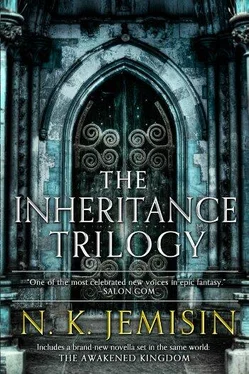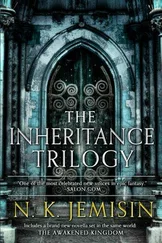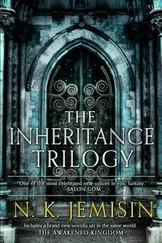“You must come here , Mother,” she said tightly. “No matter what you’ve seen in some dream—”
“I have seen Sky fall,” said Remath, and Shahar jerked beneath my hand. “And I have seen myself die with it.”
In the other image, the one in the large sphere, there were screams. A sudden loud concussion that I thought might have been an explosion. And suddenly the sphere was jostled from its place, falling toward the Salon steps. We heard the crunch as it broke, and then the image vanished. The other image—Remath’s image—shuddered a moment later, and she looked around as people exclaimed in alarm behind her. They had felt the explosion, too.
“Why did you have the Lady build Echo, if not to come here?” Shahar was shaking her head as she spoke, wordless negation despite her effort to speak reasonably. “Why would you do this, Mother?”
“I have dreamt of more than Sky.” Remath suddenly looked away from Shahar, her gaze settling on me and Deka. “I have seen all existence fall, Lord Sieh. Sky is merely the harbinger. Only you can stop it. You and Shahar and you, my son. All three of you are the key. I built Echo to keep you safe.”
“Mother,” said Deka in a strained voice. “This—”
She shook her head. “There’s no time.” She paused suddenly, looking away as a soldier came close and murmured to her. At her nod, he hurried away, and she looked at us again, smiling. “They are climbing the Tree.”
Someone in the Marble Hall cried out. Ramina, his face taut, stepped forward. “Remath, gods damn it, there’s no reason for you to stay if—”
Remath sighed, with a hint of her usual temper. “I told you, I have seen how this must go. If I die with Sky, there is hope. My death becomes a catalyst for transformation. There is a future beyond it. If I flee, it all ends! The Arameri fall. The world falls. The decision is quite simple, Ramina.” Her voice softened again. “But… will you tell her…?”
I wondered at this as Ramina’s jaw flexed. Then I remembered: Morad. She wasn’t present, no doubt trying to assist Wrath in preparing for the possibility of an attack. I hadn’t realized Ramina knew about them, but then, I supposed, he was the only one Remath could have trusted with the secret. No doubt Morad knew about Ramina fathering Remath’s children, too. The three of them were bound together by love and secrets.
“I’ll tell her,” Ramina said at last, and Remath relaxed.
“I will, too,” I said, and she started. Then, slowly, she smiled at me.
“Lord Sieh, are you beginning to like me?”
“No,” I said, folding my arms. It was Morad whom I liked. “But I’m not a complete ass.”
She nodded. “You love my son.”
It was my turn to flinch. Very carefully I avoided looking at Deka. What the hells was she doing? If any of us got through this, the whole family would find some way to use my relationship with Deka against him. Perhaps she simply thought he could handle it.
“Yes,” I said.
“Good.” She glanced at Deka, then away, as if she could not bear to look at him. From the corner of my eye, I saw his fists clench. “I could protect only one of them, Lord Sieh. I had to make a choice. Do you understand? But I… I did what I could. Perhaps someday, you…” She faltered silent, throwing another of those darting glances at her son. I looked away so that I wouldn’t see what passed between them, and saw others doing the same around the room. This was too intimate. The Arameri had changed indeed since the old days; they no longer liked to see pain.
Then Remath sighed and faced me again, saying nothing. But she knew, I felt certain. I nodded, minutely. Yes, I love Shahar, too. For whatever good that did.
It seemed to satisfy Remath. She nodded back. As she did this, there was another shudder in Sky, and the image began to flicker. Deka muttered something in gods’ language and the image stilled, but I could see the instability of the message. Color and clarity wisped away from the image’s edges like smoke.
“Enough.” Remath rubbed her eyes, and I felt sudden sympathy for her. When she lifted her head again, her expression held its usual briskness. “The family and the world are yours now, Shahar. I have no doubt that you will do well by both.”
The image vanished, and silence fell.
“No,” Shahar whispered. Her knuckles, where her hands gripped the chair, were a sickly white. “No.”
Deka relented at last and came over. “Shahar—”
She rounded on him, her eyes wild. My first thought was, She’s gone mad .
My second thought, when she grabbed Deka’s hand, then mine, and I realized her intent in the same instant that magic washed through me like the arc of light that heralds a star’s birth—
—was demonshit, not again .
We became We.
As one, We reached forth with Our hand, unseen and yet vast, and picked up the bobbing, lonely mote that was Echo. And it was as one that We sent that mote west, hurtling across the world so rapidly that it should have killed everything inside. But part of Us (Deka) was smart enough to know that such speed was fatal for mortals, and We shaped the forces of motion around the mote accordingly. And another part of Us (me) was wise in the ways of magic, and that part murmured soothingly to the forces so they would be appeased, or else they would have backlashed violently against such abuse. But it was the will—Shahar, Shahar, O my magnificent Shahar—who drove us forward, her soul fixed on a singular intent.
Mother.
We all thought this—even I, who hated Remath, and even Deka, whose feelings toward her were such a morass that no mortal language could encompass it. (The First Tongue could: maelstrom .) And for all of Us, mother meant different things. For me it was a soft breast, cold fingers, the voice of a god with two faces—Naha, Yeine—whispering words of love. For Shahar it was fear and hope and cold eyes warming, fleetingly, with approval, and a single hug that would reverberate within her soul for the rest of her life. For Deka—ah, my Deka. For Deka, mother meant Shahar, a fierce little girl standing between him and the world. It meant a child-godling with old, tired eyes, who had nevertheless taken the trouble to smile kindly at him, and stroke his hair, and help him be strong.
For this, We kept control.
The palace slowed as We approached Sky-in-Shadow. We saw everything, everywhere within the scope of Our interest. On the ground just outside the city: a small force of warriors, northerners from many nations. Usein Darr was among these, sitting on the back of a small, swift horse, watching the city through a long contraption of lenses that made the distant seem closer. Like a nautilus spiral, We cycled inward, seeing all the sane folk of the city evacuating, bottlenecks of traffic on every major street. Further in: a dead masker. Beside his body crouched a woman, alone, weeping. (Mother.) In. Godlings in the streets, helping their chosen, helping any who asked, doing what they could, not doing enough. We have always been far better at destroying than protecting. Further in. Maskers now, the ones whose bodies had been old or infirm; they straggled behind their more able comrades, hobbling toward the Tree. In, in. Dead soldiers here, in the sigil-marked white of the Hundred Thousand Legions. They littered the Salon steps, lay disemboweled on the Promenade stones, hung from the windows of nearby buildings—one with a crossbow still in his hand, though his head was gone. In.
The World Tree.
Its trunk was infested with tiny, crawling mites that had once been thinking mortals. The maskers climbed with a strength that mortal flesh should not have possessed—and indeed, a few of them did not. We saw them fall, the magic burning out their bodies. But more of them clung securely to the thick, rough bark, and more still made the climb, steadily. It was only a half-mile to Sky, straight up. Some of the maskers were more than halfway there.
Читать дальше












